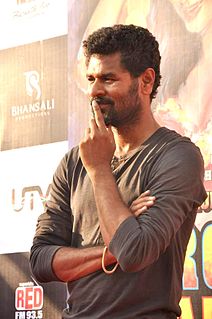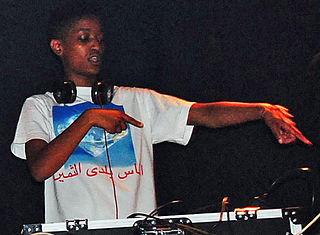Цитата Стива Мартина
Мне нравится то, что приносит третий мужчина. Своего рода косое видение, видя в материале что-то, чего вы не знали. Как комик, я всегда слушаю публику. А в кино иногда единственными зрителями являются продюсер и режиссер. Мне нравится иметь чужое мнение, особенно если вы на одной волне.
Связанные цитаты
Производитель может что-то собрать, упаковать, проконтролировать, внести свой вклад. Я из тех продюсеров, которым нравится отходить на второй план и позволять режиссеру работать с ним. Если я ему понадоблюсь, я рядом с ним. Мне, как режиссеру, нравится, когда со мной присутствует продюсер. Как продюсер, я не хочу быть там, потому что я в первую очередь режиссер, я не хочу быть «этим парнем».
Мне нравится рассказывать истории и общаться с людьми, чтобы все хорошо проводили время. Я никогда не хочу оказаться в ситуации, когда люди чувствуют необходимость высказать мне свое мнение. Так что я держусь подальше от любого материала, который может заставить кого-то в аудитории кричать мне свое мнение.
Иногда вы знаете, насколько хороши некоторые люди, и тогда вы действительно видите, как они проводят матчи, которые, как вы знаете, они могут иметь перед аудиторией, которая не привыкла к такому. Затем, через несколько минут, публика находится на краю своих мест, просто благодаря мастерству своих способностей.
Я люблю смотреть, как кричат зрители. Я думаю, это та же самая радость, которую испытывает режиссер, снявший комедию, когда он или она сидит в глубине театра и слушает смех публики. Этот звук смеха так сладок для комедийного режиссера, и это именно то, что чувствует фильм ужасов, когда вы слышите крик публики.
Меня интересует наклонность как понятие, глубоко связанное с жизненным опытом человека, а не отдельное от него. На днях я слушал интервью с кинорежиссером Стивеном Фрирзом на канале NPR, и он сказал: «Жизни людей никогда не бывают такими, какими вы их себе представляете», или что-то в этом роде. Человеческие жизни косые. Для меня имеет смысл, что внимание к ним на языке также имеет смысл.
Никогда не знаешь, как все устроено и что именно привлечет аудиторию. Иногда даже самый лучший материал и лучшая коллекция людей, интерпретирующих этот материал, просто почему-то не летают с людьми. Есть много телешоу или фильмов, которые, возможно, не так хороши, как другие, которые действительно работают, когда дело доходит до поиска аудитории. Это тайна, вот и все. Если бы кто-то понял это, это была бы отличная индустрия.
Аудитория — идеальная вещь, чтобы выпустить на волю яд и ненависть. Это не обязательно означает, что вы ненавидите всех в аудитории, но когда перед вами так называемая масса обожателей, это идеальная мишень для такого рода отвращения. Иногда вы оказываетесь в ситуации, когда вы вымещаете свое отвращение на публике, и многие из них продолжают возвращаться, потому что им действительно нравится этот аспект. Таким образом, что это рассеивает чувство, и вы не получаете одно и то же высвобождение.
Вы не можете ожидать, что все будут смеяться или аплодировать вам за резкие поступки. Иногда вы будете скучать. Но я думаю, что комики — артисты, и в неудачах есть ценность. Это как бы работает в обоих направлениях между комиками и зрителями. Зрители должны понимать, что комики иногда будут рассказывать анекдоты, которые не сработают на мрачные темы, а комик должен понимать, что иногда они потерпят неудачу, и зрители не виноваты в том, что не поняли или не полюбили это.
Что сделали социальные сети — Facebook, Twitter — так это показали зрителям. У меня нет аудитории. Когда я делаю свою работу, она просто уходит в эфир. У меня толстая кожа, и это просто сводит меня с ума, понимаешь, осознать, насколько далекой и ничтожной является аудитория, понимающая то, что я говорю. Это угнетает, если я позволяю этому добраться до меня. И то же самое с развешиванием спектакля, как он поставлен на три этажа выше, и вы не можете прочитать ни слова.
Мне нравится поговорка: «Мир такой, какой ты есть». И я думаю, что фильмы такие же, как и вы. Вот почему, хотя кадры фильма всегда одни и те же — одно и то же количество, в той же последовательности, с одними и теми же звуками — каждый просмотр разный. Разница иногда тонкая, но она есть. Это зависит от аудитории. Есть круг, который идет от публики к фильму и обратно. Каждый человек смотрит, думает, чувствует и придумывает свое собственное понимание вещей. И это, вероятно, отличается от того, во что я влюбился.


































